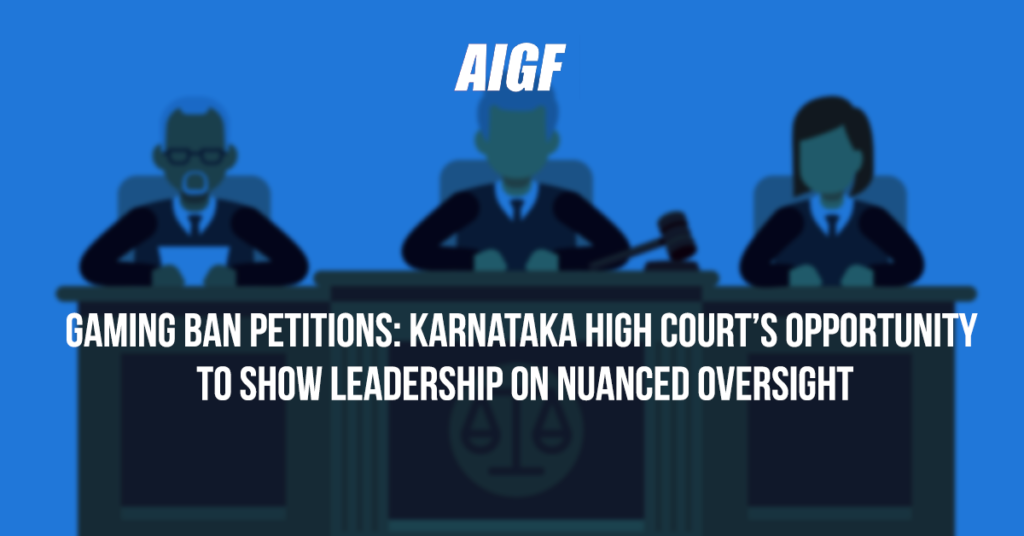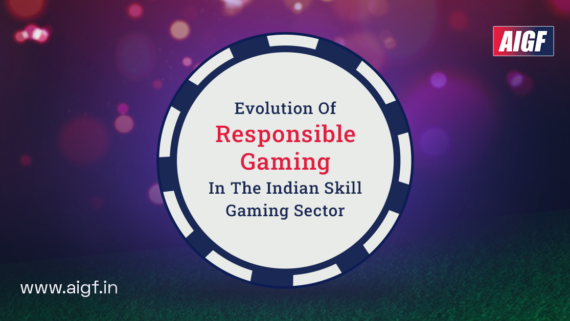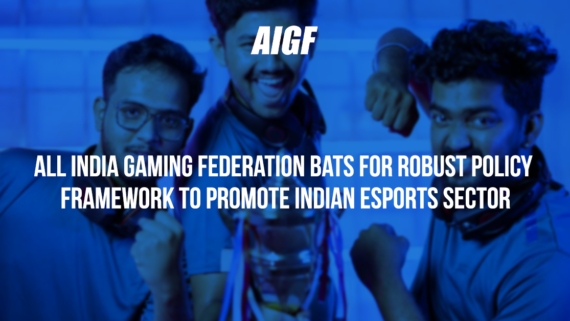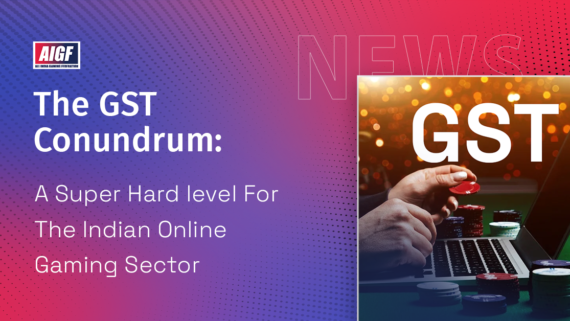The online gaming industry, driven by the All-India Gaming Federation, challenged the changes to the Karnataka Police Act in Karnataka High Court. In addition to other things, the petitioners challenged the state council’s ability to edge such a regulation, contending that Entry 34 of the State List just engages the state to make regulations on wagering and betting (i.e., games of chance), and not on games of skill.
Gaming Ban Petitions: Karnataka High Court’s Opportunity To Show Leadership On Nuanced Oversight
Online games played with genuine cash stay a petulant topic for Indian administrators. A few state legislatures have vowed to manage the bad habit of online betting. Such guarantees are commonly trailed by clearing prohibitions on online gaming – ones that disregard the well-settled distinction among gaming and betting, stretch out even to esports and games of skill – and hurt an arising and completely authentic industry. In October last year, Karnataka, arguably one of India’s most innovative-friendly states, presented a comparable boycott, which was then challenged in the Karnataka High Court.
Changes to Karnataka’s betting regulations
Karnataka amended its Police Act to boycott online gaming including all types of betting. The state characterized ‘gaming’ broadly to incorporate “any act or risking money, or otherwise on the unknown result of an event including on a game of skill”. It additionally included betting and wagering through ‘tokens valued as far as money before or after issue of it, or electronic means and virtual currency.’ This understanding hits even pay-to-play games that don’t need a gamer to pay money for each move they make in the game (e.g., casual games like candy crush).
Karnataka likewise presented another definition for ‘online gaming’, and made betting on games of skill correctively sanctionable. It made online betting a non-bailable offense, for which the police can capture without a warrant, culpable with prison time and a fine.
These progressions to Karnataka’s regulations deviate from the since quite a while ago perceived differentiation in Indian regulation between games of skill and chance. In India, the, for the most part, acknowledged guideline of regulation is that if a game requires a larger number of components of skill than components of chances, it is viewed as a game of skill. This position has been insisted on by various Supreme Court and high courts’ decisions. Thusly, where a game’s result (win/loss/draw) is reliant exclusively on a dice roll it would be a game of chance, yet if it relies to a great extent upon how a player plays, it would be a game of skill (e.g., chess).
Challenge before the Karnataka High Court
The online gaming industry, driven by the All-India Gaming Federation, challenged the changes to the Karnataka Police Act in Karnataka High Court. In addition to other things, the petitioners challenged the state council’s ability to edge such a regulation, contending that Entry 34 of the State List just engages the state to make regulations on wagering and betting (i.e., games of chance), and not on games of skill. This qualification has for some time been perceived by the Supreme Court, including for the instances of KR Lakshmanan v State of Tamil Nadu and RMD Chamarbaugwala v Union of India.
Then again, the public authority of Karnataka contended that the amendments were a social regulation to safeguard the monetary interests of Karnataka residents. Furthermore, on ability, the state contended that ‘betting’ implied marking money on any unsure occasion, and consequently, any game where stakes are involved would be inside its ambit, including games of skill. To lay out skills, Karnataka additionally depended on Entry 26 of the State List, which manages exchange and trade inside the state.
What would be the best next step?
The Karnataka High Court has held its decision on the matter. The petitions before the court, challenging the activities of the Karnataka government, cut across a few classes of online games. This offers the court a great chance to recognize that there are various kinds of online games, and that controlling online gaming to get rid of unlawful exercises (e.g., betting) may be custom fitted for various game sorts. The court might even decide to think on the standards to guide such a separated examination.
Therefore, choices from different high courts and the Supreme Court have been game explicit, and a few have been about offline types of various games. The various types of online games have not been dissected for their differences as far as gameplay (e.g., modes of play, fee structure, rules, and so on) This examination is vital to getting what hazards gamers might confront, and as needed, what guidelines ought to tackle. This is by and large the circumstance that has emerged in Karnataka, with an expansive brush amendment hitting a wide range of online games, without recognizing the distinctions in gameplay.
In 2021, we likewise saw various occurrences of comparative graceless guidelines, with courts being called to step in. In August last year, the Madras High Court gave an emphatic request, striking down the Tamil Nadu Gaming and Police Laws (Amendment) Act, 2021. Among others, the request was unequivocal in its analysis of the inordinate state paternalism in controlling even the private existences of the residents. Be that as it may, Tamil Nadu stays a pause and watch state, as the public authority has challenged this choice in the Supreme Court, and the chief minister has pledged to end online gaming in the state.
Closely following the Madras high court’s choice, the Kerala High Court gave its structure, saving a revision to the Kerala Gaming Act, 1960, which had prohibited all types of online gaming for stakes. Appropriately, on the issue of the use of Entry 34 of the State List – likewise, an issue before the Karnataka High Court – the Kerala High Court concurred with its Madras partner that it doesn’t enable state legislatures to manage games of skill. In its organization, the Kerala High Court noticed that “playing for stakes or playing not for stakes can never be a standard to see if a game is a game of skill.” It likewise noticed that simply because a game like rummy is played in the online structure it doesn’t consequently turn into a game of chance. The Madras and Kerala high courts likewise concurred that games of skill benefit from assurance under the two Articles 14 (equality) and 19(1)(g) (freedom of trade) of the Constitution.
The Telangana government is additionally reexamining its way to deal with directing online games. The Telangana head secretary of information technology, Jayesh Ranjan, has freely recognized that a sweeping boycott isn’t an answer. Preceding this, Jayesh Ranjan has additionally highlighted the public authority chipping away at rules to support self-guideline for online and fantasy games.
Given these turns of events, it is a touch amazing that the Karnataka government continued with a broad prohibition on online gaming action in the state, rather than a nuanced approach separating games of skill and chance.
Qualifying for games of skill and chance, the public authority of Karnataka might have empowered self-guideline, and the reception of best works on including payment limits, time limit, and player preparation, among others. As they stand, the amendments to the Karnataka Police Act will just smother advancement and hurt the development of unified ventures and sports.
Credit: Firstpost











Comments
Comments are closed.